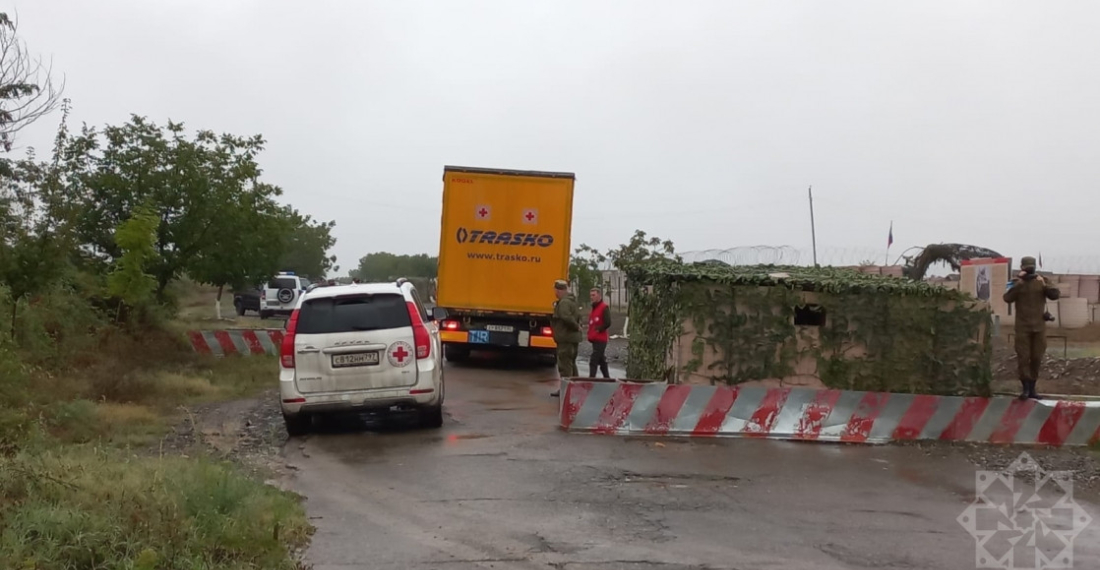The territorial conflict between Armenia and Azerbaijan has never been a purely inter-state matter between the two countries. Since the beginning of the conflict in its post-Soviet period, neighboring big powers like Russia and Iran sought to manipulate the conflict and use it as an instrument for their parochial regional interests. It is a well-documented fact that Armenia succeeded to occupy the Azerbaijani territories thanks to military and political support of Russia. Likewise, it was thanks to the Russian support that Armenia was able to consolidate its control over the Karabakh region and adjacent Azerbaijani districts. The conflict has always been a critical tool for Russia to exert influence on Azerbaijan and keep Armenia under control.
The Second Karabakh War, whose third anniversary will be marked on September 27, was a major game changer in this context. Azerbaijan, having surpassed Armenia in military and economic might, liberated the occupied territories while leaving the Armenian-populated part of the region under temporary control of Russia’s peacekeeping contingent. Russia had to reconcile with not only Azerbaijan’s restoration of its sovereignty over the bulk of the occupied territories but also with Baku’s alliance with NATO member Turkey, as well as with Azerbaijan’s deepening relations with Russia’s rivals in the West.
Moscow is well aware that its influence over Azerbaijan as well as Armenia would disappear should Baku succeed to restore its influence over the Karabakh region and terminate the mission of Russia’s peacekeeping contingent. To the dismay of the Kremlin, Azerbaijan has been on this path since the end of the Second Karabakh War. Azerbaijan’s installation of a checkpoint at the Lachin road on April 23 this year, to the frustration of Russia whose Foreign Minister categorically opposed this move during his visit to Baku two months ago, dealt a major blow to Russia’s role in Karabakh. The mutual recognition of each other’s territorial integrity by Armenia and Azerbaijan in the wake of the US- and EU-mediated peace talks in the first half of May was arguably the last drop for Russia. As expected, Moscow observed that the settlement of the conflict leads to the slow drift of both Armenia and Azerbaijan into the Western camp.
Under Russia’s guise, the separatist regime in Karabakh started to oppose much more resolutely any deal between Baku and Yerevan and condemned the latter’s recognition of Karabakh as part of Azerbaijan. In parallel, the Russia-aligned revanchist forces in Armenia began to be more outspoken and warned against any peace treaty on the terms proposed by Baku and supported by the West.
Under these circumstances, some observers with a clear understanding of regional power dynamics and Russia’s still strong leverage both over Armenia and the separatist regime in Karabakh expected deterioration of the situation and a halt in the peace process. The armed attack against Azerbaijani border guards at the Lachin checkpoint on June 15 marked the beginning of further worsening of the situation. Rejecting Azerbaijan’s offer of alternative route to the Karabakh region via the Agdam district and multiplying the blockade propaganda throughout the international media, the Armenian side brought the process to the brink of another war. Undoubtedly, this serves the interests of those within the Kremlin who likely breathed a sigh of relief when Western-mediated peace treaty efforts faced a significant challenge.
It is understandable up to this point. What is more surprising is the fact that there are countless media outlets, politicians, and even some governments in the West who become entangled in this manipulation indirectly aiding Russia’s objectives. First, putting pressure on Azerbaijan to open the Lachin road and provide free movement therein, is exactly what Russia needs at the moment. This road is the only passage that Russia can use to arm the separatist regime in Karabakh and prevent the complete resolution of the conflict.
By keeping control over the Lachin road and offering an alternative via the Agdam district, Azerbaijan seeks to eliminate the Russian control over the region and create favorable ground to put an end to the peacekeeping mission in 2025. Concurrently, Baku pledges to provide all the needs, security and rights of the local Armenian population and readies to undertake this obligation in a peace treaty mediated by the international partners. A sober mind would have expected the Western governments to support simultaneous opening of the Agdam road and support the opening of the Lachin road in compliance with the border and customs regulations of the republic of Azerbaijan.
Quite the contrary, the Western pressure against Azerbaijan, the dispatch of the French aid to the Lachin border, and the statements like “Agdam road cannot be alternative to the Lachin corridor” have complicated Azerbaijan’s efforts to minimize the Russian influence over the Karabakh region. Russia has wisely benefitted from this situation. Sending humanitarian aid to the Karabakh region via Agdam road, served a dual purpose for Moscow. First, Russia has reinforced its image as the only power that could bring aid to the Karabakhi Armenians at times of need which is important to ensure the future of Russia in this region. Secondly, this also bolstered Russia’s position as a regional power broker, conveying the message that Moscow is an indispensable actor in this region.
That said, it is clear that the present developments between Armenia and Azerbaijan and in the Karabakh region shapes the future of the regional geopolitics. Regrettably, the Western nations have thus far missed the chance to fully capitalize on these emerging opportunities, which could have assisted the regional countries in bolstering their independence and diminishing Russia’s influence.
source: Dr Vasif Huseynov, is a Senior Advisor at the Center of Analysis of International Relations (AIR Center) and Adjunct Lecturer at Khazar University in Baku, Azerbaijan.
photo: A vehicle of the Russian Red cross carrying aid to Stepanakert passes through a Russian checkpoint on the Aghdam-Khankendi road on 12 September 2023
The views expressed in opinion pieces and commentaries do not necessarily reflect the position of commonspace.eu or its partners







